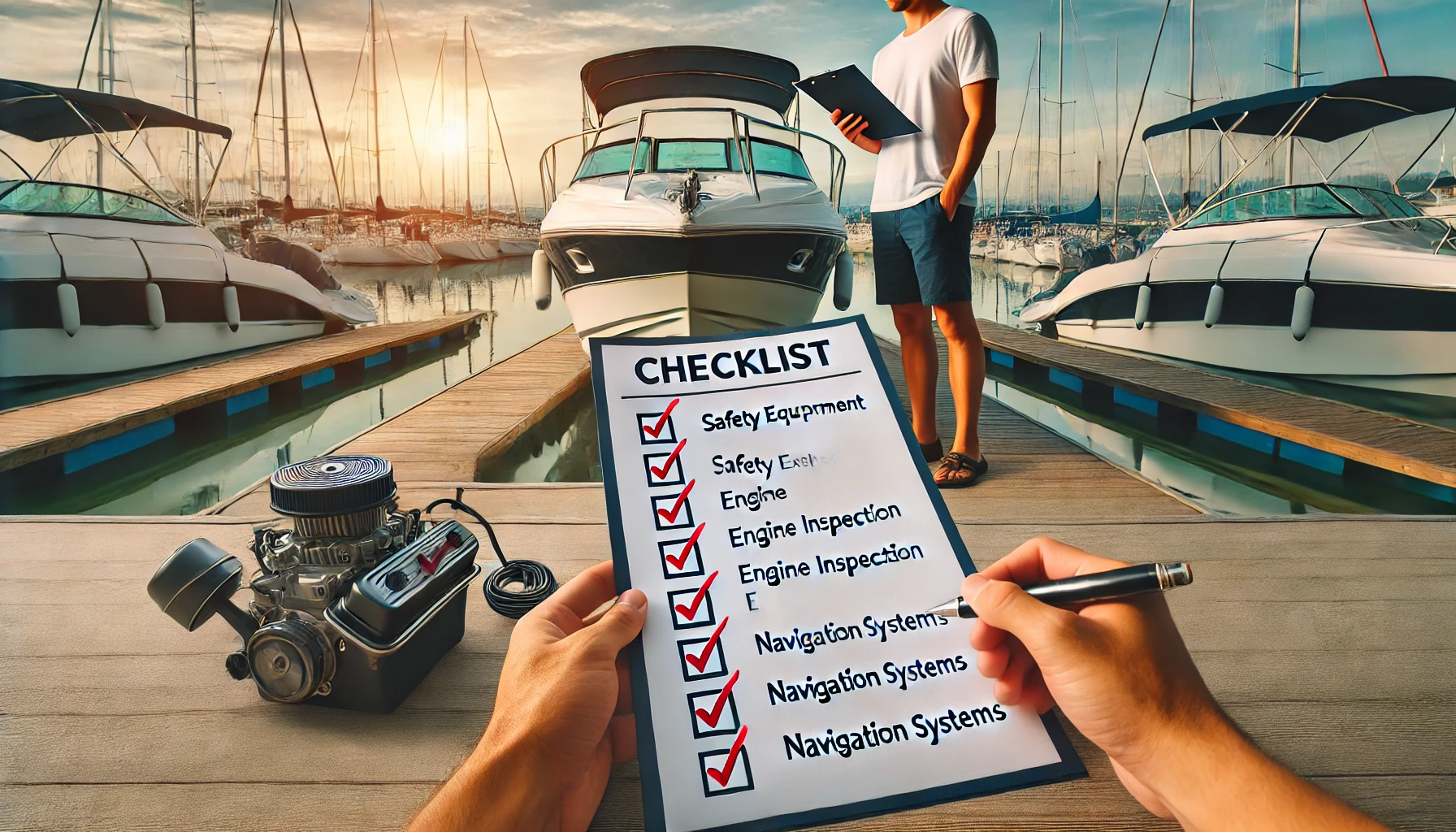Introduction: Setting Sail on Your Boat-Buying Journey
Purchasing a boat is an exciting venture, promising countless adventures on the open water. However, buying a boat is a significant investment, and it’s crucial to make an informed decision. This guide will walk you through essential considerations and tips to ensure you’re well-prepared for boat ownership.
Determine Your Boating Needs
Before you start shopping, it’s important to understand why you want a boat. Are you looking for a vessel for fishing, cruising, water sports, or perhaps long-distance sailing? The type of activities you plan to enjoy will influence the kind of boat that best suits your needs. For instance, a fishing boat is equipped differently than a yacht designed for long voyages.
Set a Budget
Budgeting is a critical step in the boat-buying process. Determine how much you’re willing to spend not only on the purchase price but also on maintenance, storage, insurance, and fuel. Boats can range from a few thousand dollars to millions, so having a clear budget will help narrow your options. Don’t forget to account for additional costs such as docking fees, winter storage, and possible upgrades.

New vs. Used Boats
Decide whether you want a new or used boat. New boats come with the latest technology, warranties, and the assurance that there are no hidden issues. However, they also come with a higher price tag. Used boats can be more affordable, but it’s essential to conduct a thorough inspection or hire a marine surveyor to check for any potential problems.
Understand Different Types of Boats
Boats come in various shapes and sizes, each designed for specific purposes. Familiarize yourself with the different types of boats available:
- Sailboats: Ideal for those who enjoy the tranquility of sailing.
- Motorboats: Perfect for speed and power enthusiasts.
- Pontoon Boats: Great for leisurely cruises and family outings.
- Fishing Boats: Equipped with fishing gear and technology.
- Yachts: Luxurious options for long-distance travel and comfort.

Understanding the differences will help you make a more informed decision.
Inspect Before You Buy
If you’re considering a used boat, inspection is paramount. Look for any signs of wear and tear, especially on the hull and deck. Check the engine and other mechanical systems for any issues. Inspect the electrical systems, plumbing, and any onboard electronics. Hiring a professional marine surveyor can provide a detailed evaluation and potentially save you from future headaches.
Consider the Storage and Transportation
Think about where you will store your boat. If you don’t have waterfront property, you’ll need to arrange for marina storage or dry storage, both of which come with fees. Consider the logistics of transporting your boat if it’s not going to be kept at a marina. Trailerable boats offer more flexibility but require a suitable vehicle and trailer.
Know the Maintenance Requirements
Boats require regular maintenance to stay in good condition. This includes engine maintenance, cleaning, and inspecting for damage. Understand the maintenance schedule for the type of boat you’re buying. Regular maintenance helps prevent costly repairs and extends the life of your boat. Factor in the time and cost of maintenance when planning your budget.
Understand Boating Laws and Regulations
Boating is regulated by various laws and regulations that vary by location. Familiarize yourself with local boating laws, including registration requirements, safety equipment mandates, and boating licenses. Ensure your boat is equipped with the necessary safety gear, such as life jackets, flares, and fire extinguishers.
Insurance and Warranties
Boat insurance is essential to protect your investment. Research different insurance providers and policies to find one that suits your needs. Coverage can include liability, damage, and theft. Additionally, consider the warranty options available, especially if you’re buying a new boat. Warranties can provide peace of mind and financial protection against unexpected issues.
Test the Waters: Sea Trials
Before finalizing your purchase, take the boat for a sea trial. This test drive on the water will help you assess the boat’s performance, handling, and comfort. Pay attention to how the boat handles at different speeds, its maneuverability, and the functionality of onboard systems. Sea trials are an essential step in ensuring the boat meets your expectations.
Seek Expert Advice
Don’t hesitate to seek advice from experienced boaters or professionals. Join boating forums, attend boat shows, and consult with marine experts. Learning from others’ experiences can provide valuable insights and help you avoid common pitfalls.
Making an Informed Decision
Buying a boat is a significant decision that requires careful consideration and planning. By understanding your boating needs, setting a realistic budget, knowing the types of boats available, and thoroughly inspecting any potential purchases, you can make a confident and informed decision. Remember to factor in storage, maintenance, insurance, and compliance with local regulations. A well-thought-out purchase will lead to many enjoyable and safe boating adventures. Happy boating!

